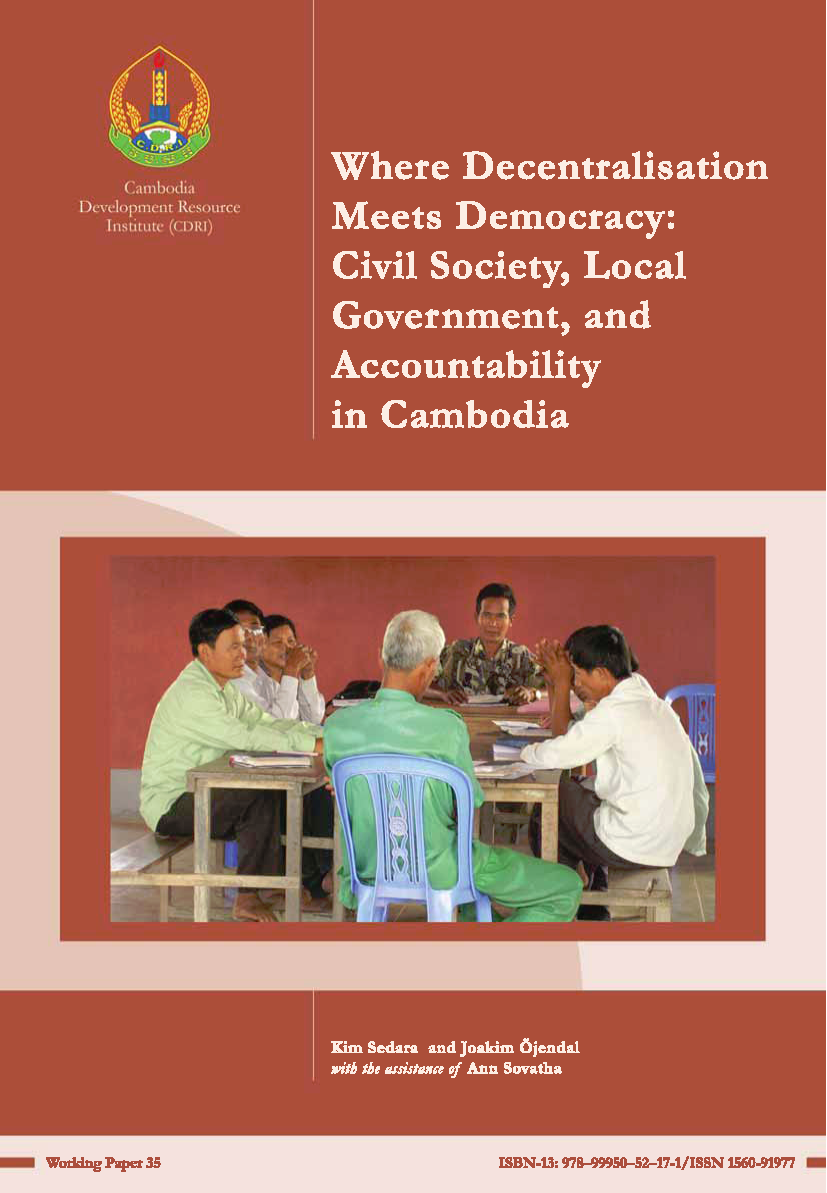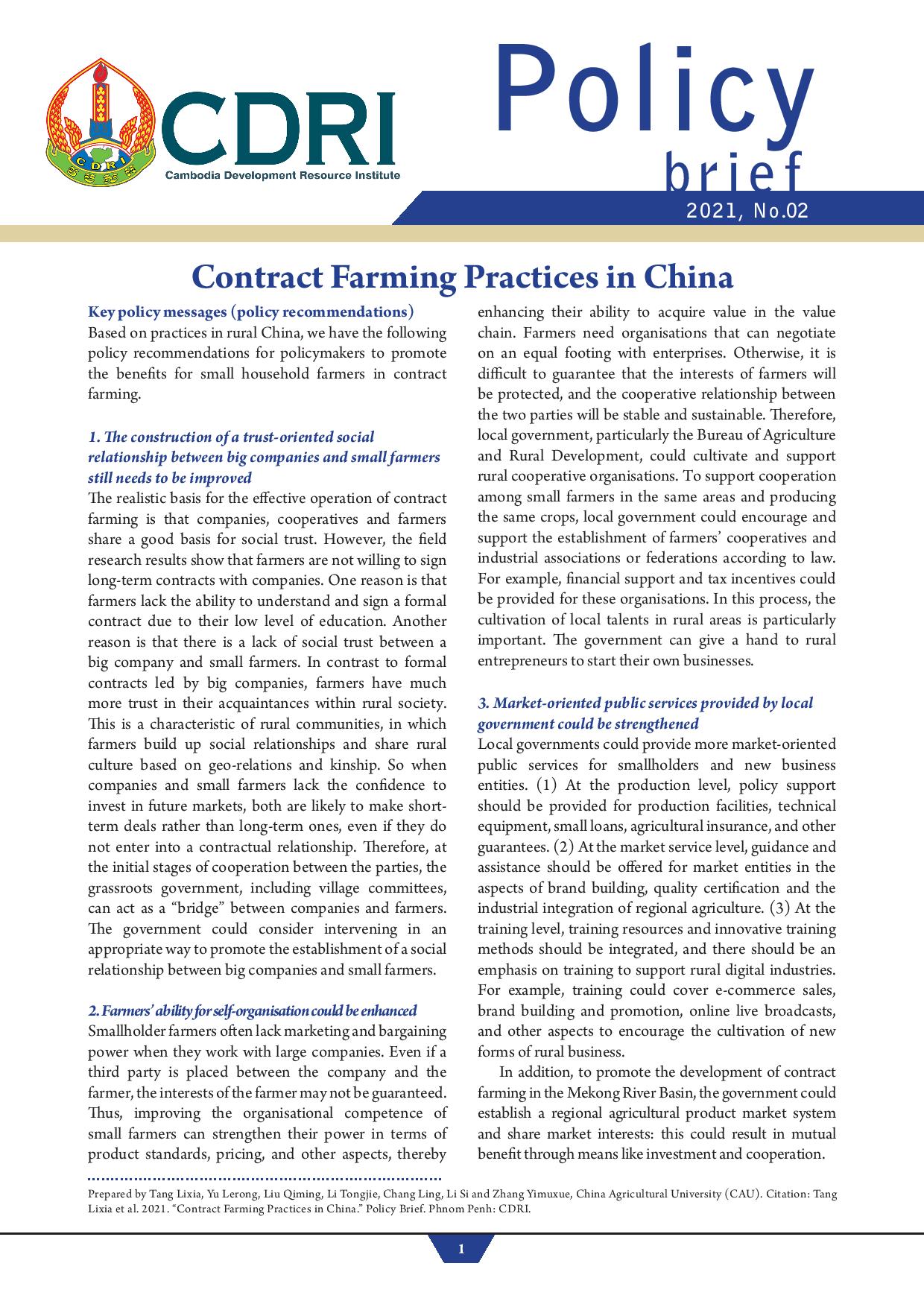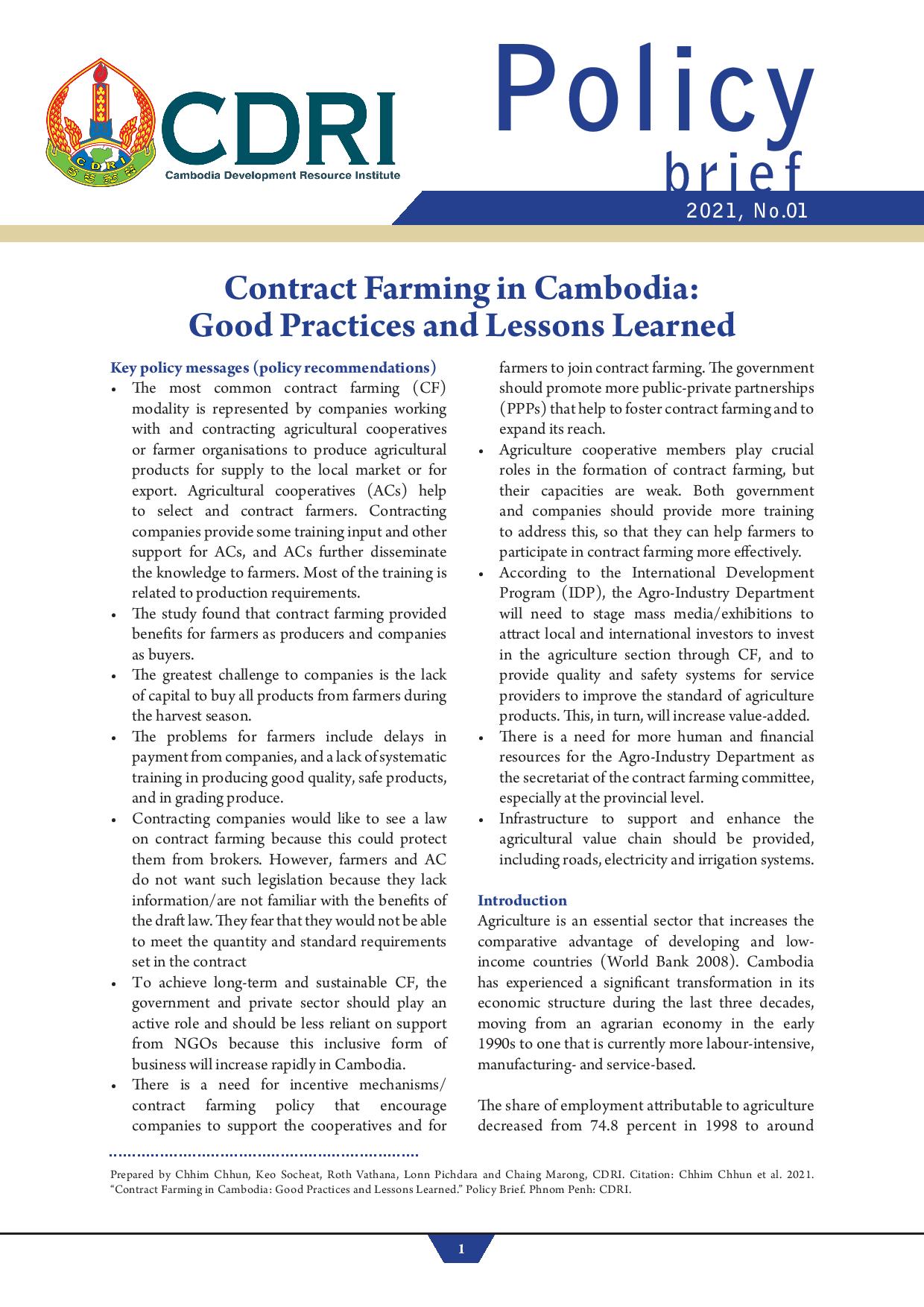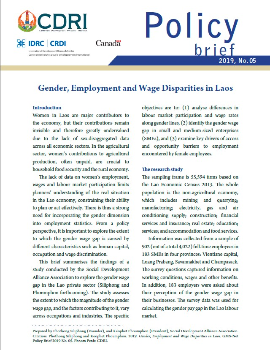
Where Decentralisation Meets Democracy: Civil Society, Local Government, and Accountability in Cambodia
Keyword: Decentralisation, community-based organisations, local government accountability, civil society engagement, deconcentration reform
Abstract/Summary
This working paper explores the intersection of decentralisation and democratic development in Cambodia, focusing on the role of community-based organisations (CBOs) in enhancing local government accountability. Drawing on field research in five communes, the study examines three types of CBOs—School Support Committees (SSCs), Forestry Communities (FCs), and Community Fisheries (CFs)—and their interactions with Commune Councils (CCs). The research identifies three critical dimensions of accountability: citizen participation in CBOs, partnerships between CBOs and CCs, and the political power of CCs within the broader governance system. Findings reveal that while CCs are increasingly responsive and open to collaboration, their limited mandates and resources constrain their ability to deliver meaningful accountability. CBOs, though active and locally rooted, often depend heavily on external NGOs, which can undermine their legitimacy and effectiveness. The study concludes that strengthening civil society, improving the capacity and autonomy of CCs, and accelerating deconcentration reforms are essential to fostering democratic accountability in rural Cambodia. Policy recommendations include enhancing local participation, clarifying institutional roles, and aligning responsibilities with resources to support sustainable governance.



